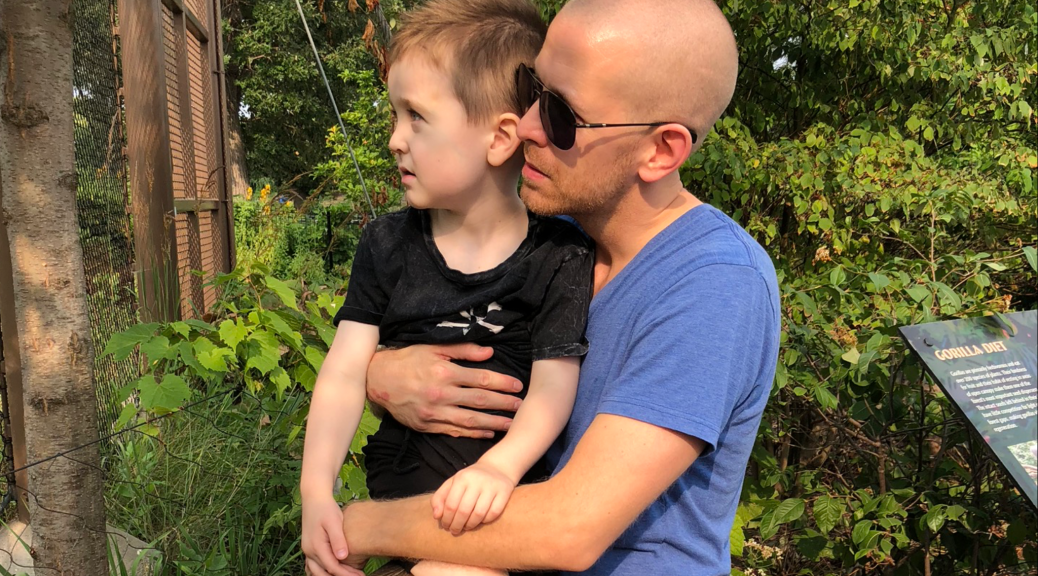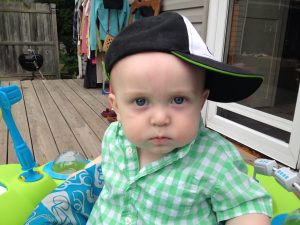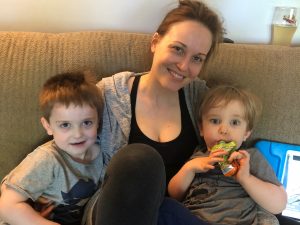
Asking The Right Questions
How do you ask the right questions when you don’t even know the questions to ask in the first place? Or when you don’t even know to question at all?
This is a really hard dilemma that many people have been faced with. In my opinion, the toughest part about it is that often times you don’t even know you’re in the midst of the situation, when you’re definitely in the midst of it.
Questions and Ignorance
Ignorance. It can be bliss. But it can also be really terrible.
Prior to being thrust in to the world of autism, I had had very little first hand exposure to it. I have a younger cousin who is autistic, so I was at least somewhat familiar with how autism can present itself. This was only one person, one individual case. I would definitely count myself among the ignorant when it came to autism-related information though.
When D was diagnosed as being on the autism spectrum, it was a very defining moment in my life with very real gravity to it. I’ll often reflect on the fact that there are exceedingly few times in my life that have made me feel like an adult. Buying cars, buying a home, becoming a father and a husband… none of them really resonated an adulthood chord within me.

In the moment of that diagnosis, I felt like an adult. I felt like an adult who had an entire world on his shoulders. A world where I didn’t know the climate, the landscape, the language or the people. A world that I was all of the sudden going to be not only navigating, but hopefully leading my family through.
That was a scary moment. It was just that, though – a moment. It passed because what other choice does one have when faced with a situation like that? You either own it, process it and manage it or what… you give up? No, there is no choice.
My wife and I immediately embarked on a very steep learning curve. We began speaking with professionals trying to learn how our son functions and how he might function moving forward. We began reading anything about autism we could get our hands on that we thought may help us. I attended every single speech therapy and occupational therapy session to try to learn techniques to bring home.
We wanted to give our son the best situation possible to move forward and grow. Most of all, we wanted him to be happy.
Along the way we have had numerous guiding lights in the form of D’s therapists and teachers at Fraser. I honestly do not know where we’d be right now had it not been for those people. They helped us discover why he does what he does sometimes. More importantly, they helped us discover who D is. Most important, they helped D discover that he has a voice and the ability to use it.
We have had countless questions along the way. Many about immediate concerns like potty training or about helping D cope with changes in routines or transitions. We have had diet-related questions, sleep questions, questions about every aspect of life. We have really learned how to be better question askers and to accept help, which has never been either of our strong suits.
What if there are questions out there that you don’t even know to ask though? What if you are in situations where you don’t even think to ask questions in the first place?
We have recently been paired with a case manager who is phenomenal. Prior to meeting her, I honestly didn’t know what a case manager did but I knew that we didn’t need one. It wasn’t until someone suggested we may be eligible for more help and that we could pursue more help through a case manager that I took notice. I’m very glad this happened.
She has helped us uncover resources we didn’t know existed. This caused me to pause and think for a moment. Over the course of D’s therapies, there have been many times where new information was presented to us that we didn’t know about prior. I always prided myself on being thorough in my research. These situations would always surprise me.
Thinking about these times where I didn’t know that a service existed until it was brought up as a possible avenue of approach, or a new therapy tool or developmental toy… I have often found myself frustrated that I didn’t know about them earlier. I could have saved time, could have saved effort, frustration, etc.. There could have been a way to help D better.
That thinking, while potent and well placed in its meaning, is flawed. You don’t know what you don’t know, you know? Until you know it. Then everything changes.

I have come to the conclusion that in this journey my family is on and on every journey I embark upon, I will do my best to be diligent to pay attention, to think critically and to focus on asking the right questions.
Jeff Johnson is credited with saying “the best journeys answer questions that in the beginning you didn’t even think to ask.”
That is so very true. While some of the questions we have today are the same questions we had on the day D was diagnosed with autism, there are many more that are a direct result of the evolution of this journey. There are so many questions that have been answered along our way that have helped shape my mind in a way that I am able to formulate better questions and search for the corresponding answers more efficiently to best assist our children.
It’s a wonderful process that happens that is not unique to our situation. The more you learn about something, the more you realize you don’t know. That…awareness of ignorance breeds more effective questions.
I am thankful for every person and every resource we have had the opportunity to have access to along the way. I am perhaps most thankful for how this journey has changed my way of thinking and processing and of being present.
While there may not be anything to be done about being ignorant in the moment, you can always look back and analyze the situation and use that wisdom to look at your present state a little closer.
Revisiting that microscopic vantage from time to time really does wonders. This whole autism path has led to many unexpected questions. I think most of them aren’t even related to autism.
2 thoughts on “Asking The Right Questions”
Without a doubt, you have a talent for writing sir. And your children, your family… what a beautiful compilation of human beings.
I hope you publish something again soon. I truly enjoy reading these.
Thank you!!1